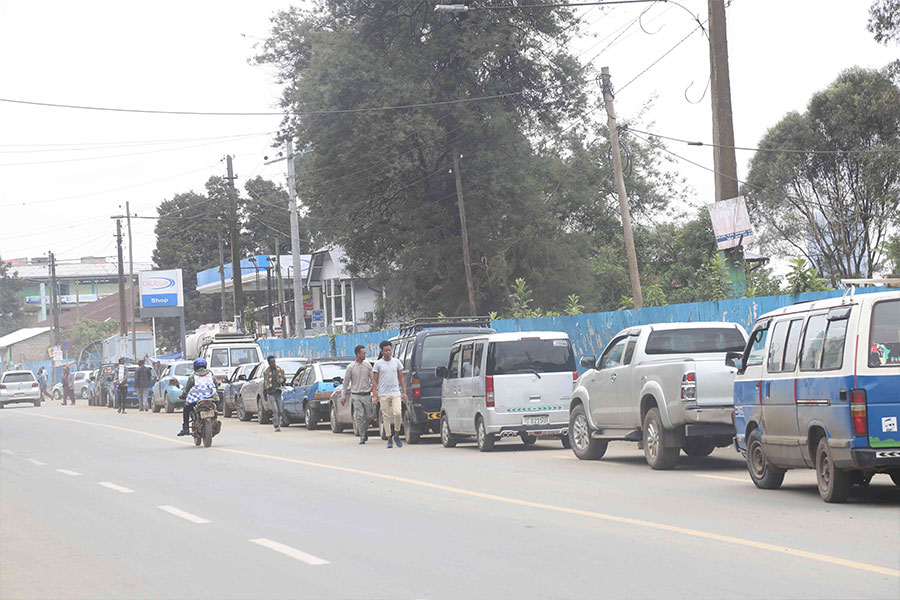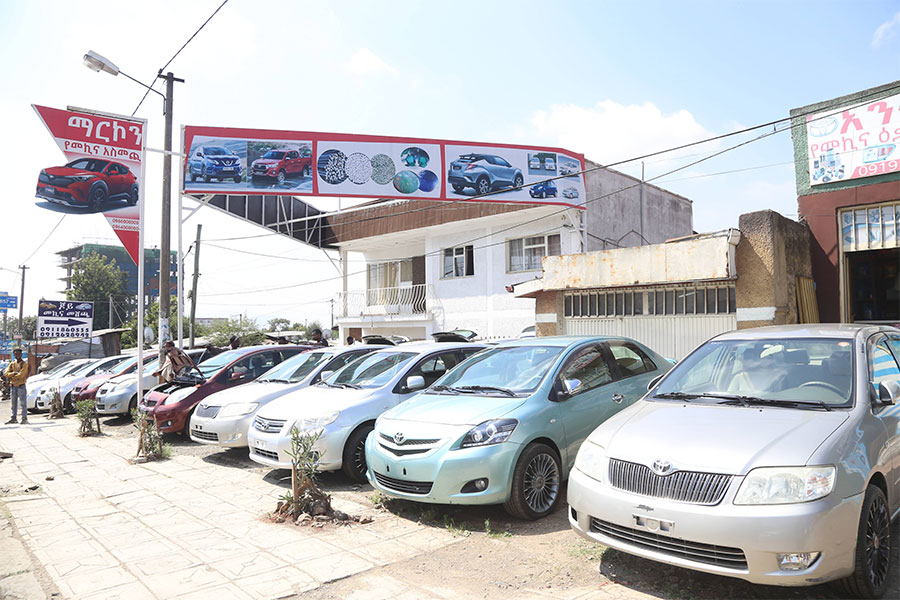
Viewpoints | Feb 24,2024
Oct 31 , 2020
By HAGOS GEBREAMLAK ( FORTUNE STAFF WRITER )
Used vehicles from public offices that are ready for disposal cannot be used for transportation or for personal uses, according to a new directive in the making. The directive, which is being prepared by the Ministry of Finance, states that these vehicles should be sold off by auction as scrap metal.
Previously, the Public Procurement & Property Disposal Service and respective public offices had been transferring the vehicles to buyers for further use through an auction system. The new directive, which is in the making following the proposal from the Service, will enable it to sell non-functional and used vehicles as scrap for recycling.
The decision to dispose of old public vehicles in the form of scrap is aligned with the policy by the government to discourage the use of second-hand cars, according to Tsewaye Muluneh, director-general of the Service.
The government has been formulating laws to discourage the import and sale of used cars. Recently, the parliament legislated an excise law that imposed higher tax rates on second-hand vehicles. With the new excise tax law, used cars two to four years old are subjected to a 105pc excise tax. Cars between four to seven years old are subjected to 205pc excise tax, while vehicles over seven years of age will also be taxed at 405pc.
Selling malfunctioning vehicles was a source of traffic accidents and heavy levels of harmful fossil fuel emissions, according to Tsewaye, who added that selling the vehicles for scrap is aimed at tackling such problems.
However, the directive gives room for vehicles that are in excellent condition to be sold for specific uses. The Federal Transport Authority is given the mandate to prepare criteria dictating which of the vehicles are to be disposed of as scrap and which are to be auctioned for further use. The Authority is in the final stage of drafting the manual.
This September, the Ministry of Finance has also dispatched a circular for all of the public offices to send the list of old vehicles they wished to be disposed of.
Many public offices have vehicles that are not functioning and are being damaged by sunlight, according to Tsewaye.
These vehicles were not disposed of in their intact form due to their limited functional capabilities for potential buyers," she said, "and we've been exposed to criticism, because we didn’t dispose of them on time."
Ahead of the legislation of the directive, the Service has sent a request to the Ministry of Finance and the Civil Service Commission for a budget of 1.3 million Br to hire experts for the disposal process. It planned to hire 11 professionals divided into two teams, which will be deployed in the capital and the regional states to handle everything from categorising the vehicles to preparing tender documents.
Each team consists of four automotive experts, four asset valuation professionals and three drivers. The experts will separate vehicles into the scrap or intact categories, and the Service will tender bids to sell them. The disposal of used vehicles in the capital is expected to be completed by the end of December. Then the Service will send the experts to regional administrations to execute the same activities until March 2021.
The current law states that vehicles are to be disposed of intact when they stop functioning. This has led to many vehicles not being offloaded due to their minimal potential for second-hand function.
These old vehicles are characterised by incomplete combustion. They do not wholly burn the fuel and produce and discharge carbon monoxide to the environment, according to Yitayal Addis, assistant professor of environmental science at Kotebe Metropolitan University and a PhD candidate at Addis Abeba University.
"As there are many old vehicles and heavy carbon emissions, especially in the capital," said Yitayal, "the environment is very susceptible to pollution."
Yitayal appreciates the idea of disposing of these vehicles for scrap since the high levels of pollution also endanger public health. He adds that old cars do not have much economic value when used for transportation, in addition to the pollution issues they cause, arguing that recycling their parts is a much better method of disposal.
"Scrap disposal may also be more economically viable as the old vehicles would be recycled and used for other purposes," he said. "This will also likely reduce traffic accidents."
PUBLISHED ON
Oct 31,2020 [ VOL
21 , NO
1070]

Viewpoints | Feb 24,2024

Fortune News | Feb 25,2023

Agenda | Jul 09,2022

Viewpoints | Dec 17,2022

Radar | Dec 26,2020

Fortune News | Apr 22,2022

Sunday with Eden | Oct 12,2019

Editorial | Dec 02,2023

Radar | Mar 11,2023

Fortune News | May 06,2023

Dec 22 , 2024 . By TIZITA SHEWAFERAW
Charged with transforming colossal state-owned enterprises into modern and competitiv...

Aug 18 , 2024 . By AKSAH ITALO
Although predictable Yonas Zerihun's job in the ride-hailing service is not immune to...

Jul 28 , 2024 . By TIZITA SHEWAFERAW
Unhabitual, perhaps too many, Samuel Gebreyohannes, 38, used to occasionally enjoy a couple of beers at breakfast. However, he recently swit...

Jul 13 , 2024 . By AKSAH ITALO
Investors who rely on tractors, trucks, and field vehicles for commuting, transporting commodities, and f...

Jul 5 , 2025
Six years ago, Ethiopia was the darling of international liberal commentators. A year...

Jun 28 , 2025
Meseret Damtie, the assertive auditor general, has never been shy about naming names...

Jun 21 , 2025
A well-worn adage says, “Budget is not destiny, but it is direction.” Examining t...

Jun 14 , 2025
Yet again, the Horn of Africa is bracing for trouble. A region already frayed by wars...